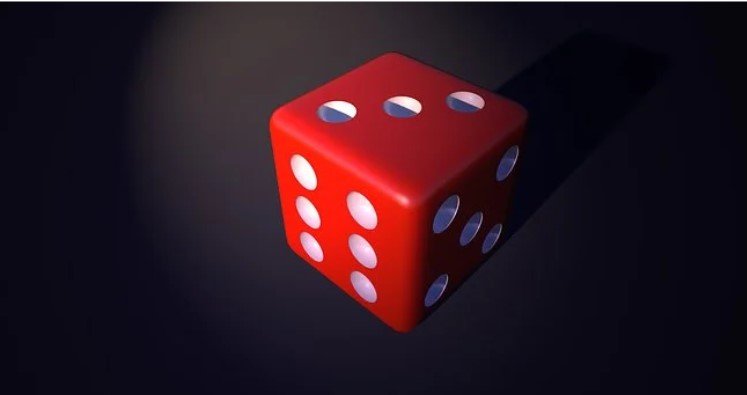The gambling world has never been as accessible and exciting as today. What began as a few casinos in Las Vegas, Macau, and Monte Carlo has expanded to online casino and sportsbook websites across the globe that have offers such as this $5 minimum deposit casino canada way. These online casinos allow you to get a certain amount of free spins depending on your deposit, which is why many people choose them!
To truly understand the depth of the gambling industry, we need to take a look back at its history. Gambling has existed for centuries, and some of the world’s most famous names have had a number of wins and defeats. We’ve now progessed to the point of having tools like bookie betting software and betting apps on our phones.
Since ancient times, casino games have been played by Greeks, Romans, and many other civilizations throughout history. In the 17th century, gambling was introduced to North America when European settlers brought over card games like poker. Online casinos have changed the gambling industry by making it more convenient for players. To enjoy casino benefits, play at Alberta casino online and still have a good time!
History of Gambling
The history of gambling goes way back before civilization, long before the popular aviator moçambique multiplayer game was launched in 2019. The first gamblers appeared at the time when the first civilization was being created, and we are talking about Ancient Egypt, China, and India. These countries are considered the birthplace of gambling.
In India, they found board games similar to chess, senet, and Mehen. All these games have become very popular in Ancient Egypt. In Ancient Greece, young people played dice - it was called alea; Italy popularized this game and gave it its modern name - dice.
The Roman Empire legalized gambling, making it possible to conduct large-scale gambling activities throughout the empire. But after Rome fell, Europe fell into disarray, and they replaced prosperity.
Source: https://cdn.pixabay.com/photo/2017/01/08/13/58/cube-1963036__340.jpg
Rise of Medieval Gambling
Italians started to use playing cards as early as the 14th century. The first decks were hand-painted artistically but quickly became mass-produced. In 1441, the first European gambling act was made a criminal offence. The law came into force in Venice and was spread throughout Europe by Spaniards and Italians.
Horse racing was among the first means of gambling – the races were a part of daily life in Rome and Greece. And the bets were accepted everywhere – in theatres, circuses, and even at hippodromes where horse races were run. It is believed that the English began to play horse racing around 1206 when King Henry II made it possible to legalize horse racing. And in 1666, King Charles II revived horse racing in England to raise money for restoring the royal treasury after two major fires destroyed London in 1666 and 1667.
After the decline of horse racing, lotteries became the most popular form of gambling, which was very popular all over Europe from 1515 to 1867. Due to their widespread popularity, lotteries were funded by governments for centuries. Famous Italian mathematician Leonardo Fibonacci (1170 – 1250) introduced Arabic numerals into Europe.
Gambling in the Renaissance
When it comes to gambling, the Renaissance period in Europe was a time of strange superstitions and even stranger gambling games. The years 1600-1800 witnessed incredible technological and scientific advancement, yet they were also a time when the world was said to be flat and the sun revolved around the earth.
While the day's technology was changing rapidly, people’s mindsets had not evolved from their forefathers. Most people still believed in superstition and magic, but some questioned these beliefs. This is why gambling was such an interesting mix of superstitious beliefs and scientific understanding during this period.
Gambling in the 20th Century
Two trends marked gambling history in the 20th century. One of them was the growth of gambling institutions, such as the legalization of gambling. The second is a fierce struggle against gambling, which was pursued by conservatives and religious people.
The 20th century is a time of significant changes for gambling. In the early 1900s, only a few states allowed legal gambling. Gambling became legal in Nevada in 1931, and in New Jersey legalized in 1933 after World War II. In 1978, New Jersey became the second state to allow casino gambling, following Nevada’s example.
In 1975, the first video slot appeared on the market. A year later, Las Vegas introduced new rules: players were allowed to double their bets after the cards were dealt, and blackjack paid 3:2 instead of 6:5. These rules helped attract more customers to Las Vegas casinos and paved a new era in casino history.
Due to technological innovations, the world has witnessed unprecedented development in the gaming industry during the 20th and 21st centuries. The increase in online casinos has made it easier to create games and distribute them to a wider audience and you can find anything and everything. Getting started can be as inexpensive as a gaming club $1 deposit.
Know the Gambling History!
Gambling has a long and colourful history, stretching back to the dawn of time. The ancient Greeks gambled heavily, casting lots for everything from their favourite sports team to which partner they'd marry.


